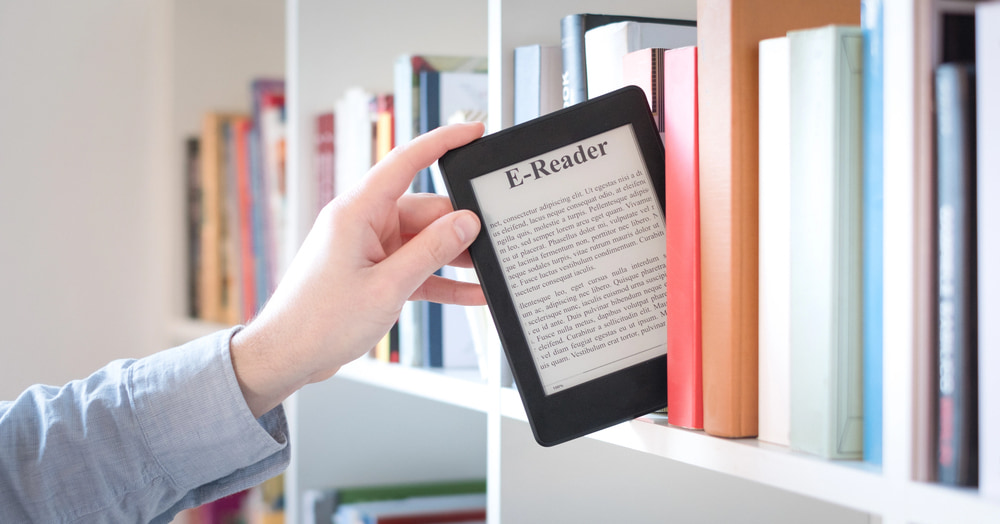Independent and Self Publishing: Do you know the difference?
The terms “self-publishing” and “independent publishing” often get confused. If that happened to you before, we don’t blame you — surely if you do something by yourself, you’re independent, right? Not in publishing.
The two types of publishing actually have quite a few differences, so much so, that they are considered completely different things. This can make the whole self/independent publishing mission for authors quite complicated.
We want to highlight the differences, this way authors can make more informed decisions about their own book.
What is independent publishing?
Let’s begin with independent publishing. This is basically when a publishing company publishes the work of an author.
An independent (indie) publisher is defined as one that operates on its own, rather than as part of any large corporation or conglomerate. It’s as simple as that.
Most of the independent publishers that you stumble upon will have their own set of niches. For example, non-fiction, e-books, essay writing, culture…the list goes on and on.
Check out these lists of independent publishers.
30 Best Small and Indie Literary Publishers
20 Publishers Accepting Nonfiction – No Agent Required
The advantages of independent publishing
So, in comparison to commercial publishers, independent publishers are interested in something else. They make their own decision, not based on profit or quantity…but quality. They have complete autonomy of all decisions, with no restrictions. They don’t publish what people consider to be popular, they publish, quite simply, what they believe in.
An excellent independent publisher will also guide you through every step (and hurdle) in the publishing process. All the way from the beginning, say, editing and proofreading, to the end with marketing and sales.
Help with marketing and sales is crucial for first-time authors. With independent publishing, you still get freedom and autonomy, but with somebody there (with extensive experience) guiding you through the entire process.
Another benefit of independent publishing lies with their popularity. This is especially important for new, up and coming authors. Many publishing firms will have a following or repute, which means that when your book gets published, you have a little head start.
The disadvantages of independent publishing
One of the most significant drawbacks to independent publishing is the fact that you won’t earn as much money. By paying for the middleman (the middleman being the publisher), you are risking the profit you make.
In fact, a lot of independent publishers will charge more for specific things. For example, your basic package might not include marketing, editing or proofing. This can make the entire process a bit costlier.
The second disadvantage of working with an indie publisher is that it takes a lot longer to get your work out than self-publishing. Some indie publishers do not accept manuscripts year-round and some may take up to six months to get back to you. Assuming your manuscript accepted, it could take another six months for your work to be published. A total of one year for your dream to become reality.
What is self-publishing?
That brings us nicely on to the second option – self-publishing. You are your own publisher in this instance. On the inside of your book, it will say you. Which is kind of cool, right? For a better understanding of all self-publishing encompasses The Basic Guide to Self-Publishing Books will be of great help to you.
So, you handle all your own publishing, editing, marketing, and sales. However, there are self-publishing platforms that you can use. KDP (Kindle Direct Publishing), Smashwords, and LuLu all offer services and tools to help you self-publish.
Don’t worry, even if you use a platform, you are still considered self-published. For more on them, check out Guide to Selling on Amazon, Barnes & Noble, and Kobo, and Everything You Need to Know About Aggregators.

Advantages of self-publishing
Well, first and foremost is the pride in knowing it was all your own work. You did that. Every book sold and read is because of you. This is a great feeling, which can make all the effort seem worth it.
Not only that, but you choose everything. You have the complete freedom of absolutely every single choice with your book. All the way from the cover art, glossy or matte finish, the price, distribution channels, formats. Everything.
The disadvantages of self-publishing
It’s just how you look at it. Controlling and managing EVERYTHING might seem like an advantage until you realize that…you have to control and manage…everything. This can be incredibly daunting, especially for first-time authors.
Another drawback is the lack of help. Yes, you can buy services, but that’s not the same as having the support and expertise from a publishing company, always. This lack of support can be the breaking point for many authors.
“Marketing and sales are probably the main disadvantages. If you haven’t published a book before or don’t have that big of a following, all your hard work might go unnoticed. With self-publishing, you pay a lot of upfront costs, and you need to ensure that you see those investments play out.” — Jodi Wright, Trust My Paper senior copy editor.
Which one is best for you?
Only you can really decide which one you prefer, you might even have to try them both.
As a general rule of thumb, we recommend that first-time authors send manuscripts to independent publishers, and while you wait to hear from them, self-publish. This way you have a potential source of income and develop a following while you wait to hear from the indie-publishers.
If you already have a following and don’t need the marketing prowess of a publishing agency, then you can move forward and self-publish immediately. Many authors, who have been in the publishing game a little while, decide to self-publish. They do this for the absolute control that they have and the paycheck at the end. Authors like this have gained a reputation, have a following and can risk going completely on their own.
Note if the of your ebook will become outdated in a year’s time, then you should not waste time seeking an indie-publisher. Get your ebook out on the market quickly by self-publishing via a self-publishing platform like Kindle Direct or one of the many aggregators.
Conclusion
We hope that we’ve cleared up these two interchangeable terms, that many get confused. If you’re still confused or would like to learn more about either, please feel free to ask us any questions.
Long story short, with an independent publisher that cares about your book, you can learn a lot about the publishing industry. With self-publishing and complete responsibility on you, you truly see what you’re capable of in terms of writing, marketing, and business management, as you learn the business and build up a following. You never know, you might just see amazing paybacks.
Read these posts.
Writing Process Explained for Non-Writers
18 Tips to Become a Prolific Writer












